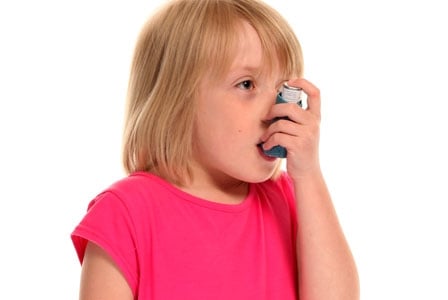
Does where you work pose a risk to your unborn child? According to Danish research, prenatal exposure to workplace pollutants may contribute to childhood asthma.
There is some research news from Denmark that makes an interesting link to the alarming statistics for childhood asthma.
Some background on asthma
According to the Asthma Society of Canada, experts are struggling to understand why prevalence rates of asthma world-wide are, on average, rising by 50 percent every decade. Other alarming statistics associated
with asthma:
- Asthma is most common during childhood and affects at least 12 percent of Canadian children.
- Asthma continues to be a major cause of hospitalization of children in Canada.
- According to the World Health Organization, asthma is now a serious public health problem with over 100 million sufferers worldwide.
- According to Statistics Canada, 8.4 percent of the population (aged 12 and over) have been diagnosed as having asthma.
The research news
The study by Danish researchers found that the children of pregnant women who worked in jobs where they were regularly exposed to airborne pollutants had a greater risk of developing asthma.
The study involved a review of registry data on 45,658 seven-year-old children and their mothers. The researchers found that 18.6 percent of children of mothers who were exposed to low-molecular-weight particles at work during pregnancy developed asthma, compared to 16.1 per cent of the general population.
Though experts agreed that this is by no means a definitive answer to the question of rising asthma rates, it is certainly an indication that the prenatal period “may be a critical period affecting the offspring’s risk for later development of asthma and other (allergic) diseases.”
Consider how those workplace allergens may be affecting your health as well as your future child’s health.



